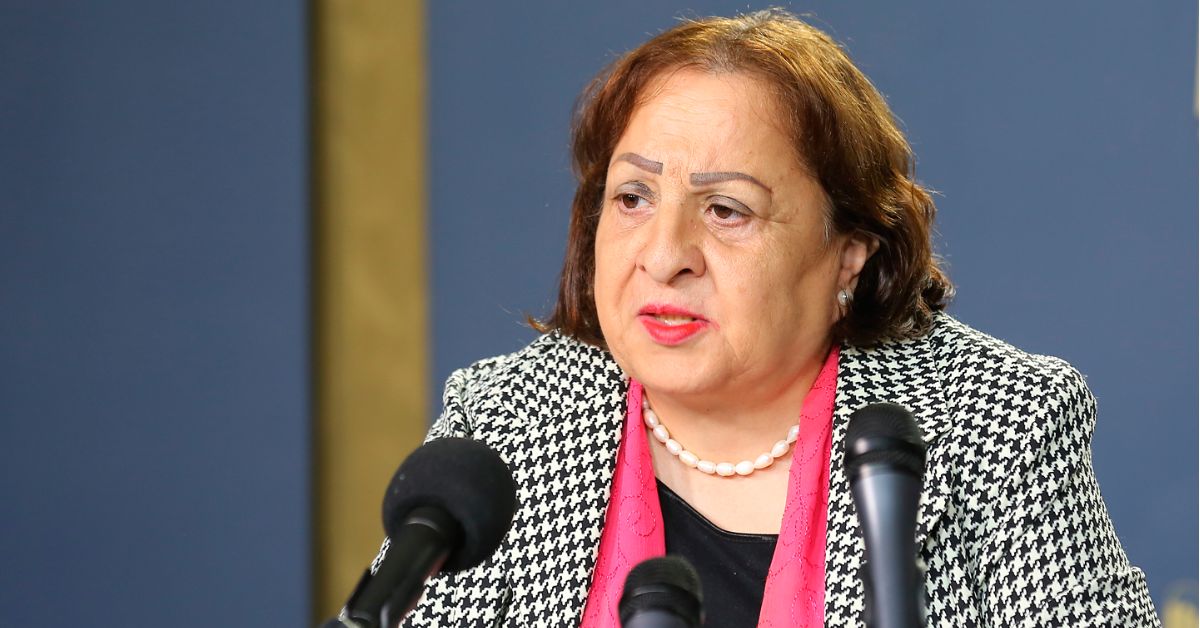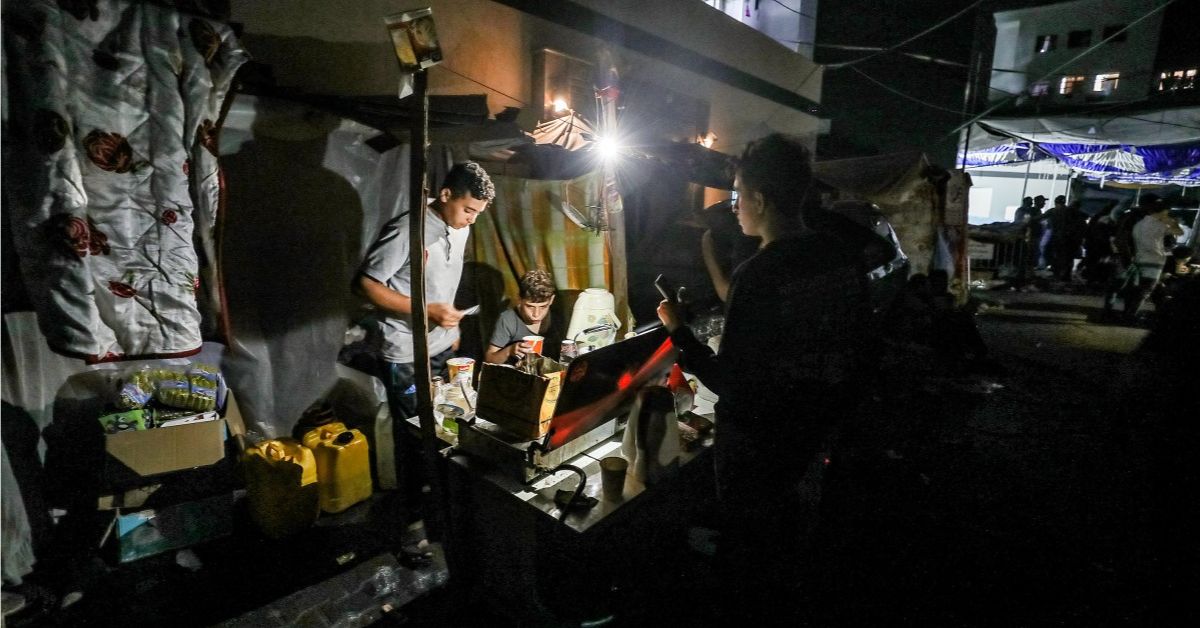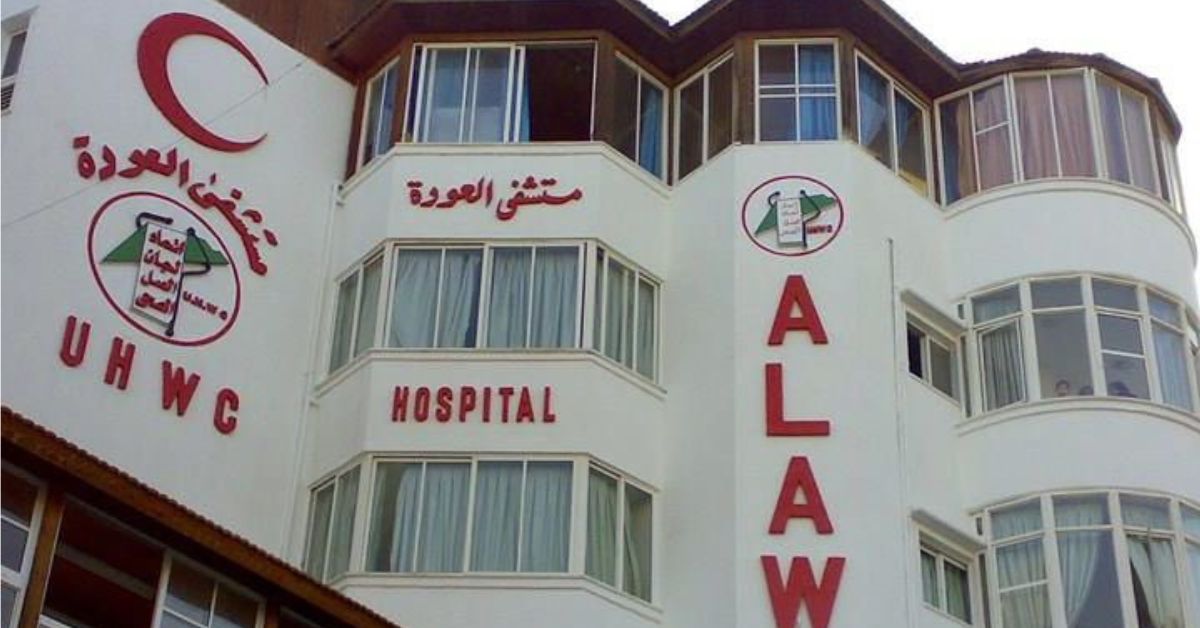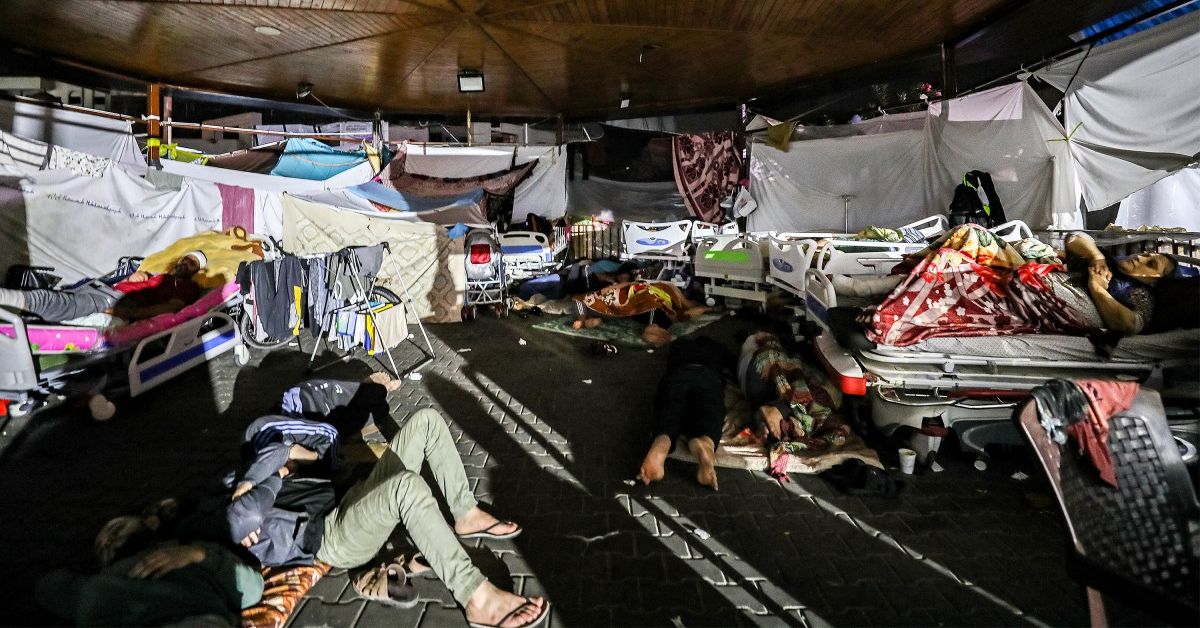RAMALLAH — The humanitarian crisis in the Gaza Strip is escalating as critical medical supplies fail to meet the urgent needs of the population amidst ongoing conflict. Palestine’s Health Minister Mai Alkaila has highlighted the dire situation, revealing that only a minimal amount of essential medical aid has reached the area.
The crisis is further aggravated by the imminent shutdown of Al-Awda Hospital, a partner of the international organization ActionAid, due to critically low fuel supplies, threatening to cease its operations entirely. This looming closure underscores the severe impact of the month-long Israeli blockade on Gaza’s healthcare system.
Death toll mounts
The Hamas-run health ministry in the Gaza Strip said the death toll from the war reached 10,569 on Wednesday, as fighting in the Palestinian territory enters its second month. The ministry said there were 4,324 children among the dead and 2,823 women, with more than 26,000 more wounded since war broke out on October 7.
During a press conference in Ramallah, along with the Palestinian Red Crescent Society, the World Health Organization, the World Food Program, and various international and national health organizations, Alkaila emphasized the urgent need for humanitarian and health supplies to be allowed into Gaza, warning of the extensive damage the aggression is inflicting on Palestinian health.

“The daily use of medicines and medical supplies amid the hostilities in Gaza equals the typical monthly usage of the health centers and hospitals there. Consequently, the supply and trucks that have made it into Gaza are merely a drop in the ocean compared to the soaring medical needs due to the continuous harsh aggression,” the minister said.
“A whole month of relentless killing, massacres, and atrocities. Children are being slain in their beds or places of sanctuary. Pregnant mothers are being killed, along with their unborn children. Nowhere in the Gaza Strip is safe. Even hospitals, which are supposed to be protected under international law and humanitarian principles, have been violated by Israel, resulting in the deaths of the ill, injured, displaced, and medical professionals within. Ambulances have been targeted, and the medical staff and patients inside have been killed. Shelters have been obliterated while people were fleeing for safety. The carnage continues… and the world bears witness,” she said.
Alkaila disclosed that to date, 192 health workers and 36 civil defense staff have been killed, with 50 ambulances damaged, 40 of which are now inoperable. In total, 18 out of 35 hospitals in the Gaza Strip have ceased operations, and 51 out of 72 primary healthcare centers have shut down, either due to bombing damage or fuel shortages.
At A Glance * Palestinian Health Minister Mai Alkaila reveals minimal medical aid has reached Gaza. * Al-Awda Hospital faces shutdown from critical fuel shortages, highlighting the impact of the Israeli blockade on healthcare. * Death toll in Gaza exceeds 10,400 with a significant number of children and women among the casualties. * Urgent need for humanitarian and health supplies in Gaza stressed by Palestinian Health Minister. * Daily medical supplies consumption in Gaza equals typical monthly usage; current aid insufficient. * Hostilities result in targeting of hospitals and ambulances, violating international law. * Over 1.5 million people in Gaza now homeless, raising risk of disease outbreak. * Gaza's health sector struggles to care for chronic disease patients and those requiring urgent care. * Fresh calls for immediate cessation of hostilities and facilitation of humanitarian aid. * Health and ambulance services severely hindered by Israeli restrictions in West Bank. * Communications with Al-Quds Hospital lost due to bombings, creating a severe healthcare crisis. * World Food Program warns of deepening food insecurity in Gaza, affecting vulnerable populations.
She drew attention to the displacement crisis, with over 1.5 million people—70 percent of Gaza’s population—now homeless, taking refuge in shelters, schools, hospitals, and public spaces lacking basic life necessities, a situation that poses a severe risk of disease outbreak.
The health sector is also struggling to care for 350,000 patients with chronic diseases like diabetes, heart disease, and cancer. “There are at least 1,050 individuals with kidney failure who require daily, urgent dialysis, over 2,000 cancer patients, and 130 newborns in incubators,” Alkaila said. “Furthermore, with over 5,000 births occurring monthly and more than 50,000 pregnant women not receiving essential medical care, their lives and those of their unborn children are in jeopardy.”
Also Read Exclusive reports on Gaza-related developments
The Palestinian minister called for an immediate cessation of hostilities in the Gaza Strip, the facilitation of entry for humanitarian and medical supplies, the expedited evacuation of the critically injured and ill, and an end to the forced displacement of residents from their homes.
In the West Bank, the situation is just as grim, according to Alkaila, with continued Israeli assaults exacerbating conditions.
“The emergency response capacity of treatment centers is under immense strain due to the sharp rise in Palestinian casualties from confrontations with Israeli forces and settlers, leading to a critical need for emergency medical supplies in hospitals,” she said.
Alkaila pointed out that the shutdown of Israeli checkpoints, unsafe conditions, movement restrictions, and targeted aggression against health facilities and personnel severely hinder ambulance services.
“Restrictions on healthcare worker mobility and patient access to primary care centers and hospitals, particularly between West Bank cities and Jerusalem, are significant,” she warned, adding that parts of Area C in the West Bank, under full Israeli control, remain out of reach for mobile clinic operators, leaving residents without essential health services.

Marwan al-Jilani, Director General of the Palestinian Red Crescent Society (PRCS), reported that communications with Al-Quds Hospital, managed by PRCS, have been severed due to bombings in the vicinity, leading to a dire situation.
Al-Jilani explained that the PRCS’s main and ambulance centers in Jabalia were targeted early in the conflict, forcing volunteers and staff to relocate their emergency operations to UNRWA-run clinics, where they continue to provide treatment under perilous conditions.
“The lack of fuel, water, and food has pushed Al-Quds Hospital into a severe crisis. This morning, the administration was forced to shut down the main generator due to fuel depletion. This action has left operating and intensive care rooms without electricity and water supply systems halted to save power for essential functions,” stated Jilani.
He also noted that solar panels, part of the hospital’s alternative energy source, have been damaged in the bombings.
Al-Jilani emphasized the dire circumstances in the northern Gaza Strip, where no aid has been received since the onset of hostilities.
He highlighted a recent incident where a convoy of aid trucks, including two destined for Al-Quds Hospital, was bombed. He noted the hospital’s role as a shelter for over 14,000 displaced individuals in addition to its function in treating the sick and wounded.
Targeted attacks outside hospital
Al-Jilani expressed concern about the targeted attacks on any movement outside the hospital, which prevent injured individuals nearby from receiving medical care. He urgently called on international health and relief organizations to deliver humanitarian aid, essential needs, medical supplies, and fuel to Al-Quds Hospital and the affected regions in Gaza.
The supply and trucks that have made it into Gaza are merely a drop in the ocean compared to the soaring medical needs due to the continuous harsh aggression.
Palestine’s Health Minister Mai Alkaila
Samer Abdul Jaber, representing the World Food Program (WFP) in Palestine, addressed the worsening humanitarian situation in the Gaza Strip, highlighting the acute shortage of food, water, and sanitary supplies.
“With the prolonged closure, we’re seeing a humanitarian disaster unfold as basic food items become increasingly rare, forcing bakeries and stores to close,” he explained. Since the conflict began, the WFP has been actively responding to the urgent humanitarian needs, aiding over half a million individuals, and is planning to expand its assistance shortly.
Abdul Jaber underscored the critical need for a secure and continuous flow of humanitarian aid, the protection of civilians, and the immediate provision of fuel. He warned that fuel shortages threaten to stop WFP’s vital services, potentially affecting nearly 500,000 people reliant on the organization’s food distribution.
Abdul Jaber also highlighted the crucial role of uninterrupted internet and telephone services, pointing out that any disruptions jeopardize the voucher purchasing program and impede the operations of various organizations and their ability to communicate with staff and partners in the field.
Abdul Jaber expressed grave concern about the deteriorating situation in the Gaza Strip, which threatens to plunge all residents, particularly vulnerable groups like infants, pregnant and nursing women, and the elderly, into food insecurity.

Fuel crisis in hospitals
Meanwhile, Al-Awda Hospital in Gaza, a partner of ActionAid, is facing an imminent shutdown due to critically low fuel supplies. The hospital has issued an urgent call to the international community for intervention, highlighting that the lives of 60 patients are at imminent risk should the fuel reserves be depleted.
Health officials report that 16 hospitals and 34 health centers across Gaza have ceased operations due to bombardment and fuel shortages. Since the onset of the conflict, Al Awda Hospital has served 3,367 individuals, including 1,572 injured and 219 childbirths.
Haneen Wishah, communications and media coordinator at Al-Awda Hospital, issued a dire appeal: “We urgently need fuel to keep Al-Awda Hospital operational. With about 60 patients currently under our care, some in serious condition, we are desperately calling on individuals, institutions, humanitarian aid organizations, and UN agencies for support. Without sufficient fuel, the hospital will shut down in less than 30 hours, disrupting services and potentially costing lives.”
Wishah emphasized the critical role of the hospital, particularly for women and children who represent 80 percent of its patients. “We are on the brink of running out of essential supplies,” she said. “We need your support to ensure the continuation of vital health services, as Al-Awda Hospital is the sole provider of maternity services in the northern Gaza Strip.”
Riham Jafari, Advocacy and Communications Coordinator at ActionAid Palestine, spoke of the dedication of Gaza’s healthcare workers, who persist in their life-saving duties despite ongoing bombardment. They provide critical care for newborns, patients on life support, and thousands of displaced individuals sheltering in and around the hospital. Yet, the potential closure of Al-Awda Hospital due to fuel shortages threatens to cripple these essential services.
Despite nearly a month of bombardments, none of the 476 aid trucks meant for Gaza has delivered fuel, hindered by Israeli government restrictions. Jafari emphasized the urgency of international intervention, stating, “The survival of hospital patients, especially in Al-Awda, is dependent on the prompt delivery of fuel. Without decisive global advocacy for immediate action, the consequences could be fatal.”
Al-Awda Hospital not only provides emergency and specialized care but is also the sole provider of maternity services in the northern Gaza Strip. Since October 7, it has served over 3,360 individuals, including 1,572 injured patients and facilitated 219 births. Women and children make up approximately 80 percent of its patients, underscoring the hospital’s critical role in the region.
(With inputs from AFP, TASS, and WAFA News Agency)







